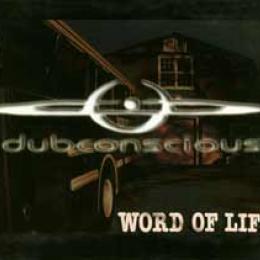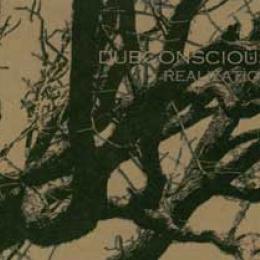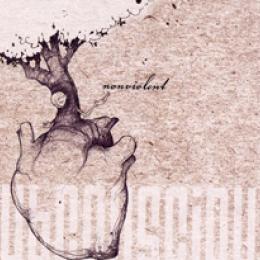Jerry Hendelberg - keyboards, melodica, vocals
James Keane - guitar, vocals
Scott Pridgen - tablas, percussion
Matt Woolley - drums, vocals
Adrian Zelski - lead vocals, guitar
Solomon Wright - bass, trumpet, vocals
Roger Levine - hand sonic, Sound
HGMN: What's the music scene like in Athens today? Is this where Dubconscious found its start?
Keane: I don't know, what day is it? We found our start in spirit, or emptiness. In a collective desire to do the right thing, as best our conscience will allow.
Woolley: The scene in Athens today is as it always has been, ever evolving in some progressive sort of way. I feel blessed and excited that it is here that Dubconscious originated.
Hendelberg: The Athens music scene is so unique. There is an amazing amount of musicians and music energy in this town. Dubconscious did start in Athens playing upstairs Tasty World every thursday night in the summer of '02.
Levine: I think that the local publication Flagpole Magazine is indicative of a thriving scene. On any given weekend there are a ton of bands playing and they run the gamut when it comes to genre and popularity. Since Foundry Entertainment has taken up the slack of Jomo Entertainment closing up shop, it seems like Athens is again the place to be if you are into music. The local music is better than any town ive seen, Especially in the folk, bluegrass latin and jazz styles.
Pridgen: The music scene is thriving. I went to a potluck the other day and everyone was a musician that was there. It feels like so many people are expressing themselves through music and with so many different types of people there is something for everyone.HGMN: How does your new studio release, The American Dream, compare to your previous release, Word of Life?
Zelski: Better equipment, better mics.
Hendelberg: American Dream is definitely very different in that the songs are more evolved and it was done trying to capture the analog feel that the old Jamaican reggae artists had going on. To be honest, I am just very excited about our live Tree Sound Studio recording we did a little over a year ago. It is going to be a two cd set with us showing all of our sides. It sounds so good.Woolley: The tone or mood of The American Dream is a bit more accessable than that of Word of Life. While still political and spiritual in content, it portrays the beliefs and ideals in a way that may come across as a bit easier to digest. Each album has a sound distinctly its own. Word was recorded digitally and has a very polished and clean sound while Dream was recorded primarily analog which adds a warmer quality to the sound.
Keane: They each stand alone. Each reflects a different moment in the groups evolution. Jay Murphy and Steve Crawford are two pillars of the athens music scene and we are blessed to have worked with either of them, especially to have worked with both of them. I can only hope for future collaborations. The other differences are many, considering we changed studios, recording mediums, producers, and had evolved as artists and people.
Levine: It's a world different, and at first I thought it was a world better, but every once in a while i put Word in the CD player and im always impressed at what producers Jay Murphy and Matt Weiss were able to do with the limited capabilities they had at the time. It's a great album.
Pridgen: I think American Dream was the next step in Dubconscious' evolution. Working with the producer, Steve Crawford, gave it a special flavor and also showed the musical evolution between the two albums. Also, the flow of the album makes so much sense.
HGMN: As a band do you feel that the new album is a huge leap forward from your original sound or do you feel that you guys have become more comfortable writing music and playing together?
Keane: Both, though not necessarily a leap forward, but maybe.
Zelski: Definitely more comfortable writing music and playing music together
Woolley: Well, the new album came out almost a year ago, so it's not exactly new anymore, but yes it was a tremendous leap forward. In all realms, we have been and are continuing to evolve both as individuals and as a collective whole. We will be releasing an album recorded live at Atlanta's Tree Sound Studios this Spring.
Pridgen: Of course I do think we are more comfortable playing together and learning to write better songs, and hopefully each album will be a great step forward in our evolution.
Levine: The guys being comfortable playing music together has always been a huge asset right from the beginning, but every show seems to solidify that bond even more.
Wright: I feel that our music is an evolution of our learning and growing together, musically and as people. We are learning to communicate and express our ideas to each other in positive ways that leads to good song writing.
HGMN: What song do you feel is the Dubconscious fan favorite?
Hendelberg: I can't say there is one favorite, for the band or fan. On a particular night there might be a song that sticks out after the show is over, but for the most part we have so many songs and so many different songwriters that it could really be any song.
Keane: Depending on the night, "Stereotypical" is usually well received, although it feels odd to reference such a song while at the same time generalizing about what fans think. People really seem to dig the Afrobeat we've been experimenting with, too. It feels good to dance.
Woolley: "Stereotypical" seems to stand out in my mind as one that people tend to gravitate toward. The lyrics are simple: "No I don't want to be stereotypical/No I don't want to fit into your stereotype."
Pridgen: The lyrics are very easy to sing along to. It is empowering lyrically for people to sing along to andcan relate to wanting to be individuals and think for themselves.
HGMN: How do you guys feel about the song?
Levine: Its my favorite song too!
Woolley: I love playing the song. It's moving. It makes peope dance. One can easily relate to what the lyrics portray.
Pridgen: Personally, I love the song and am excited about the evolution of "Stereotyical" into "Stereotype," which features some new tasty surprises.
HGMN: What's the band's favorite Dubconscious song?
Pridgen: I don't think I can speak for the whole band because we are all such unique individuals, but that is our beauty that we are all so different and we come together for a common goal, good music.
Zelski: "Stereotypical."
Keane: Usually the newest ones, but songs are like children, and we love them all.
Woolley: Recently we've incorporated in the music our bass player Solomon's breathtaking ability to play the trumpet while our soundman Roger fills in on bass. These new pieces have stepped to the forefront in my mind. Also, a dear friend and vocalist Shelly Olin from Asheville, NC has been travelling along with us and in all respects has become the 7th member of the band. Her addition has proven to be an intregal part of our overall sound. Her voice and message are as powerful as they come.
Wright: There are so many I don't think I could honestly answer that. I wake up every day with a different Dub song in my head. I'd like to feel that we are all constantly inspired! (laughs)
HGMN: What do you guys do on your off nights between gigs away from home?
Wright: We practice a lot. A lot! It's the only way to get progressively better.
Woolley: Usually we don't have too many off nights while on tour. When these rare moments occur, I find myself attempting to immerse in the culture of the area where we are. I enjoy the experience.
Pridgen: Practicing and writing new music is mainly what we do. Explore the towns we are in and learn what each place has to offer, sometimes beaches, sometimes mountains. I think we all love to find beautiful spots and enjoy the earth.
HGMN: Where did the name 'Dubconscious" come from?
Levine: I'll leave that one to the guys.
Wright: That's one for the ages. (laughs)
Hendelberg: A discussion we were having about the subconscious mind and how dub music is our favorite.
Keane: The term 'Dub' was on the table from the beginning, as a reference to the style of music rooted in reggae.
Woolley: Conscious living is a concept each member of the band embraces and we would like to be known as a group of individuals that live up to what we represent. Our name could be understood in terms of an attempt to spread the message of conscious living. We came up with the name one night during one of our first rehearsals way back when.
Pridgen: We were searching for a name and that one came up and we all loved it. Ever since it was mentioned it just seemed perfect.
HGMN: What were other names that you guys came up with?
Woolley: Oh, uh I think we tossed around a couple funny names like Bob Backwards and the Lost Tribe...
Hendelberg: Other names were The Chakras....
Keane: Soon after, the idea of the power of the subconscious mind crossed our minds. Consciousness in general, or awareness, is especially important at this point in time when we are bombarded with so many illusions of reality, morality, and truth. The other names we came up with are hardly worth mentioning, considering the only ones I can remember are awful. Really awful.
HGMN: What makes you write a song?
Zelski: Listening to roots reggae or Fela Kuti, and Afrobeat
Woolley: An innate desire to communicate positivity is what drives me to write a song. I want to move people physically and mentally. I enjoy being a part of an entity that brings people together and promotes positive change. The origin of our music lies somewhere within the hopefully graspable concept of a unifying force that binds all things together.
Keane: Inspiration, in whatever ways it may manifest. Books, conversation, a sunny day, a rainy day, connectivity, isolation, death, birth, life, but especially a good song.
Levine: I usually hear a dope bass line that sparks a similar idea. Then bring that line and maybe one other idea for a skank or a horn line, and let the guys interpret it as they do so well, and develop the song together. It usually takes a few months to evolve.
Pridgen: Inspiration from people and the environment we are in.
Wright: Inspiration. The heart. Everywhere. It's usually presented as an idea that needs cultivating. The more love and effort we put into a song the easier it is for it to realize its full potential.
HGMN: How is it usually presented and where does it go from there?
Pridgen: Its always different, sometimes it is a lyrical concept, sometimes a musical concept, but the real beauty is when a person brings a concept to the band and from there everyone puts there flavor into the song and we watch it evolve.
Woolley: We're trying to experiment with the process of recording the new song first at our studio with just the songs originator, and then presenting the concept to the rest of the band. This helps convey the structure a little better than trying to vocalize the idea. In times past, we just sat down and played the new song acoustically to initially get the idea across and then we would rehearse the song together as a whole.
Hendelberg: A song comes from individual meditation, and then from there the band will take it, mold it, sculpt it, and play it again and again and watch it evolve.
Pridgen: It is presented as a concept and each person adds their creative expression, being conscious of the songwriter's intentions.
HGMN: Who were your biggest influences growing up and has it changed much since you started touring with your own band?
Zelski: Jimi Hendrix, The Police, Pink Floyd, Bob Marley, Beatles. Yes, it has changed. I now listen to roots reggae and afrobeat.
Hendelberg: Definitely has changed over the years, used to be Rush, Jethro Tull, and then heavy metal. Now it is Erik Satie and Dave Brubeck, Lee Perry and Augustus Pablo and the Jacob Fred Jazz Odyssey.
Woolley: Influences are all part of the evolutionary process. My influences have changed over the course of my lifetime both musically and otherwise as the process unfolds.
Keane: Since we started touring I have developed a tremendous respect for any and all musicians. There's certainly more than meets the eye to the lifestyle. My biggest influences were usually people I knew on a personal level. I love artists that recognize the medium they are working with.
Levine: U2, REM, Pink Floyd, Zeppelin...the usual. When i became involved with Dubconscious i became a serious reggae snob and now i can listen to little else without getting bored. Afrobeat has had a huge influence in my life.
Pridgen: Grateful Dead, Burning Spear, Jerry Garcia Band. It has changed through all the wonderful music that has been presented to me through travelling and seeing other bands. I tend to like music with a world influence and danceable rhythms.
Wright: Miles Davis, Prince, old gospel music, and my granddad have always influenced the way I think about music and the way I feel music. I always think about my granddaddy when I play. I'd like to make him proud.
HGMN: What is your favorite album of all time?
Woolley: Too many to list one favorite...
Hendelberg: Favorite album would be pretty much any Dave Brubeck Quartet album from the classic quartet.
Keane: A favorite of all time could never be, everything changes, unless everything stays the same, but then who cares? There are so many greats, many of which I've probably never heard.
Levine: Thievery Corporation - The Richest Man in Babylon.
Pridgen: That is a hard question because different albums have inspired me and that album will be my favorite. I love playing the tablas and for a moment Tabla Beat Science was my favorite.
Wright: My favorite album is Axis: Bold as Love.
Zelski: Thievery Corporation - The Richest Man In Babylon.
HGMN: If you guys could name a key moment leading up to the path where you are today what would that moment be?
Hendelberg: Every moment is huge, but selling out our NYE show in Athens, and our last Smith's Olde Bar show which sold out. Those were great moments because having a full room makes the music take off.
Woolley: The moment we all as individuals within a band realized the potential for creating a better world through music.
Keane: Every moment is the result of the one before and is responsible for the one after. Every moment that creation has decided to flow through us in a compassionate, inspired, and uplifting manner has been key for us.
Levine: The acquisition of our tour bus. Without that we'd be broke and I would be in an institution. I dont know how bands do it without one!
Pridgen: There are many highlights, like opening up for Burning Spear and Antibalas, but continuous gigs to look forward to and performing our best keeps me very inspired.
Wright: When we first started playing together on Foundry St. in Athens. There was no other feeling that came close. I didn't care if we were serious or just played for fun. It felt really good and I wanted more of it. I love Dub.
Zelski: 5 months before the war started, we played a war protest in Centennial Olympic Park in downtown Atlanta and we were only 6 months old as a band. It gave us an idea of how powerful music can be.



